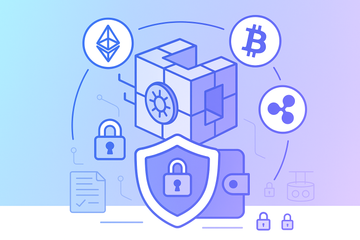If you’ve ever felt like someone was breathing down your neck while you traded crypto—asking for IDs, explanations, or just generally hovering—you’re not alone. Traditional, centralized exchanges (CEXs) really do like to steer the ship. But what if you could trade directly, peer-to-peer, no big brother and, honestly, far fewer hoops to jump? That’s where decentralized exchanges, or DEXs for short, shine.
Wait, So What’s a DEX Actually?
A decentralized exchange (DEX) is, at its heart, a marketplace built on blockchain where folks can swap crypto with one another directly. No single company holds your funds. No trusted third party sits in the middle. Instead, smart contracts—the self-executing robots of the crypto world—stand guard, ensuring rules are followed and trades happen as promised. Think of it as trading baseball cards out at the park, except the cards are digital, and the field is everywhere all at once. Popular options? Uniswap, SushiSwap, PancakeSwap, and the XRP Ledger’s own DEX are go-to names [1] [3].
Trading Without Training Wheels: How DEXs Get the Job Done
Here’s the thing: DEXs don’t make you trust anyone but yourself.
- Smart contracts: These coded agreements execute trades when both parties meet preset rules. No backroom deals. No errors from a cranky clerk [1].
- Liquidity pools: Forget buyers and sellers waiting each other out. With liquidity pools, users 'throw their coins in the pot,' making trading possible, while earning a slice of trading fees themselves [2].
- No fiat on-ramps: DEXs typically don’t play nice with dollars, euros or yen. It’s coin-for-coin only. If you’ve got ETH or USDT and want to swap for something else, this is your playground [4].
There are even different 'flavors' of DEXs: automated market makers (AMMs) like Uniswap use fancy math to set prices, while order book DEXs (think early Bitcoin trading) just match buyers and sellers directly. Then there are aggregators, like 1inch, which hop between the best-priced DEXs on your behalf [5].
Why Bother? What’s So Different from Centralized Crypto Exchanges?
On a CEX, your money is—well—kinda not your money anymore once you hit “deposit.” The platform controls your private keys and keeps everything on internal ledgers, which sometimes feel less cutting-edge and more “banky.”
DEXs, on the other hand:
- Let you keep those private keys. Your crypto stays in your wallet until you trade. Lose your keys though? There's no help desk coming to the rescue.
- Don’t care about your name, age or address. DEXs usually don’t ask for KYC info. That means more privacy—but also more responsibility [1] [4].
- Are governed by communities or “DAOs.” No faceless corporation can flip a switch and block your trading. Power to the people—at least most of the time.
Let’s Talk Downsides—Because, Honestly, It’s Not All Sunshine
You know what? Freedom comes with its fair share of headaches. Don’t let the hype fool you—DEXs are not risk-free playgrounds.
- If you mess up a transaction, there’s rarely a redo button. No customer support. No refunds. Final answer.
- Newcomers can find it a little daunting. The interfaces aren’t always as slick as Coinbase or Binance. Sometimes, it’s like jumping into a sport without laces tied.
- Liquidity can be patchy. Looking for rare tokens? Sometimes the pool is shallow and prices can swing more wildly than a theme park ride.
- Not every project on a DEX is trustworthy. Do some groundwork or you might find yourself holding the crypto version of Monopoly money.
Hardware Wallets: The Bodyguards at Your Digital Vault
This is where heavy hitters like Trezor or Ledger step up. Combining DEXs with these cold-storage wallets is like putting three deadbolts on your door. These devices keep your private keys offline, untouchable by web thieves. Popular DEXs fully support Ledger and Trezor. You connect, confirm with a button press, and never reveal your secrets to the internet itself. Safety first, even when it feels like the Wild West out there.
Seasonal Trends: Are DEXs Having A Moment?
Here’s a fun twist: DEXs have exploded in popularity during times of CEX drama or regulatory crackdowns. Every time a big exchange gets hacked or faces new rules, users flock to DEXs seeking privacy and autonomy. The rise of DEX aggregators and 'liquidity mining' has also tempted traders chasing better rates or new tokens. Users these days expect 'one-click' trades and friendly interfaces—features DEXs are scrambling to deliver, sometimes successfully, sometimes not. And with Ethereum upgrades and new ecosystems (Arbitrum, Base), DEXs keep getting faster, cheaper, (sometimes) easier.
Tips for Safer (and Saner) DEX Trading
- Double-check URLs. Scam sites that mimic real DEXs are more common than you’d think. Bookmark the real deal.
- Practice small trades first. It’s not only beginners who mess up smart contract approvals.
- Use a hardware wallet. As they say in crypto—'Not your keys, not your coins.' Protect those keys at all costs.
- Read before you trade. Just because anyone can list a token doesn’t mean you should buy it. DYOR (do your own research), always.
- Stay on the lookout. Even seasoned traders fall for phishing attacks or rug pulls.
The Real Takeaway? DEXs Empower—But Don’t Babysit
Decentralized exchanges open doors for anyone wanting total control over their assets and a shot at bigger privacy. They’re not without quirks—sometimes even seasoned traders get tangled up. But if you pair them with tools like Ledger or Trezor, accept a dash of risk, and remember that you are the custodian now, DEXs can become your most powerful (and liberating) tool in the crypto kit.
Just remember, in crypto, as in life, it pays to go slow—at least until you’ve learned a few tricks of the trade.











